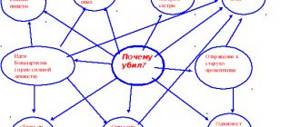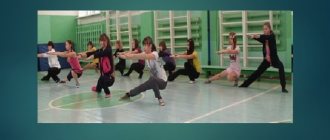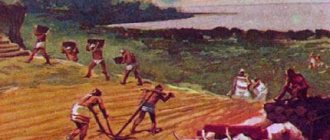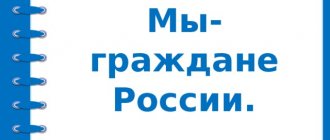Download material
so UNT / Russian literature / Lesson plans for Russian literature 6th grade
Lesson 13 A. S. PUSHKIN. ROMAN "DUBROVSKY"
01.02.2012 37385 2243
Lesson 13 A. S. Pushkin. Roman "Dubrovsky"
Goals:
start working on the novel, introduce students to its composition; find out your first impressions of what you read.
During the classes
I. Learning new material.
A fragment from E. F. Napravnik’s opera “Dubrovsky” is played.
1. Reading an excerpt from a novel.
Against the background of music, the teacher reads an excerpt from the novel (from the words “Several years ago, an old Russian gentleman lived on one of his estates...” to the words “No one dared to refuse his invitation...”).
2. Conversation on Chapter I:
– What gave Troekurov “great weight in the province”?
– How did the neighboring landowners and provincial officials treat him? How did Troekurov treat them?
– What kind of person was Kirila Petrovich at home?
– Why did Troekurov respect A.G. Dubrovsky? (“...they [Troekurov and Dubrovsky] were somewhat similar in character and inclinations.”)
– How did this similarity manifest itself?
3. An artistic retelling of the passage “An Incident at the Kennel” (prepared by a student).
– How does A.G. Dubrovsky characterize the incident at the kennel?
– Can Troekurov’s quarrel with A.G. Dubrovsky be considered an “accident”?
4. Artistic retelling of Chapter II.
5. Analysis of Chapter III.
– What kind of life did Vladimir Dubrovsky lead in St. Petersburg?
How did he take the news of his father’s illness? What traits of his character emerged during this?
Reading the dialogue between Vladimir Dubrovsky and the coachman Anton, and then the scene of the meeting with the Kistenev peasants.
– What can you say about the attitude of the servants and peasants towards Dubrovsky and Troekurov?
6. Analysis of the epigraph to Chapter IV.
– Why was the reconciliation of former friends impossible?
7. Watching a fragment of the film “Dubrovsky” (chapters V–VII).
8. Conversation on the content of the fragment.
– What feelings did Vladimir experience after his father’s death?
– How do the officials who came to “take possession” of K.P. Troekurov behave? Pay attention to their speech. Why do officials allow themselves to be so rude?
– Why doesn’t Vladimir Dubrovsky give angry peasants the opportunity to deal with officials?
– What prompted the peasants to join V. Dubrovsky?
– Why does the blacksmith Arkhip destroy clerks, but at the risk of his own life saves a cat?
– What circumstances forced V. Dubrovsky to become a robber?
– What is the perception of the leader of the robbers in the area?
II. Summing up the lesson.
Homework:
read chapters VIII–XIX.
See the downloadable file for the full text of the material.
The page contains only a fragment of the material.
Summary of a literature lesson in 6th grade on the topic “Dubrovsky and Troekurov: a history of friendship and enmity”
1. Compiling comparative characteristics of the characters in the novel. Group work(8 minutes)
The teacher presents the task, coordinates the work in groups
Exercise 1
At home you filled out the table “Comparative characteristics of Dubrovsky Sr. and Troekurov.” Provide a verbal portrait of these characters.
-What are the similarities between the characters?
- What makes them different?
(Comparative table on slide 14
)
Task 2
— You are offered a list of adjectives with which you can characterize the heroes. ( Slide 15
) Discuss in a group and create characterizations of the heroes based on these adjectives. We remember that you need not just list the adjectives, but also support them with an example from the text.
Conclusion:
Despite their different material wealth, education, character, they are friends, and the arrogant, arrogant Troekurov easily stops by at Dubrovsky’s poor house.
Physical education minute
2. Analysis of the episode “At the Kennel” (4 minutes)
Teacher: Pushkin writes: “Everyone envied the harmony that reigned between the arrogant Troekurov and his poor neighbor, and were surprised at the courage of the latter when he expressed his opinion at Kirila Petrovich’s table, not caring whether it contradicted the opinions of the owner.”
“An unexpected incident upset and changed everything” ( Slide 16)
— What “accident” are we talking about? What can you call the episode in which the quarrel is described? (“At Troekurov’s kennel”)
Reading of the episode by a prepared student . (Slide 17)
- Who is to blame for the quarrel between two friends?
(Suggestions: Troyekurov is to blame - he started laughing at the daring joke of the huntsman?
A hound who made an offensive joke?
Dubrovsky, after all, he was jealous and lost his temper?)
— According to one literary critic, Troekurov is the personification of all vices: gluttony, idleness, anger, pride, fornication. There is a lot of evil in him, but this time it was not he who struck the match. Dubrovsky was actually in many ways the same as him. Do you agree?
3. Working with the Center
.
Watching the episode “At the Kennel” from the film “The Noble Robber Vladimir Dubrovsky” and discussing it. (5 minutes)
- How did the artists convey the state of mind of their characters?
(At the sight of Troekurov’s kennel, the nodules on Dubrovsky’s face play with envy. Dubrovsky breaks his cane from the unheard-of impudence of the huntsman. Troekurov, in turn, began to laugh invitingly at the kennel’s impudent joke.)
— Do your ideas about the characters in the novel coincide after watching the film?
Teacher:
Tikhon Zadonsky wrote: “Just as a fire, if it is not extinguished, consumes many houses, so anger, if it does not stop soon, will do a lot of evil and is the cause of many troubles.” The situation that arose at the kennel became the match that ignited the fire of mutual hostility. “Let not the sun go down on your anger,” taught the Apostle Paul. Alas, the sun set, leaving both friends angry.
4. Watching the conflict between the characters deepen. Work in groups.
(8 minutes)
Exercise:
- Follow step by step how they behaved in anger.
(Having learned about Dubrovsky’s departure, Troekurov did not ask, but “ordered to immediately catch up with him and turn him back without fail.” Insulted, Dubrovsky asks to send Troekurov’s people to confess, and he will be “free to pardon and punish them.” While on a hunt, Troekurov deliberately drove across the fields Dubrovsky. Dubrovsky punished Troekurov's men, “well-known robbers,” who stole the forest from him. Troekurov “lost his temper,” “wanted to ruin Kistenevka to the ground and besiege the landowner himself in his estate. Such exploits were not unusual for him" - a thirst for revenge flares up in Troekurov ).
— What method of revenge does Troyekurov ultimately choose?
(Troekurov chose the most vile method of revenge - he decided to illegally take away the estate from his former comrade, using the services of assessor Shabashkin).



